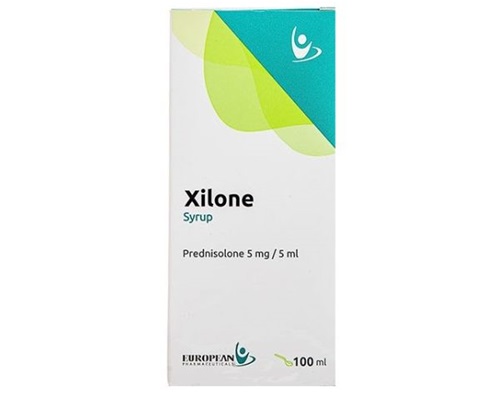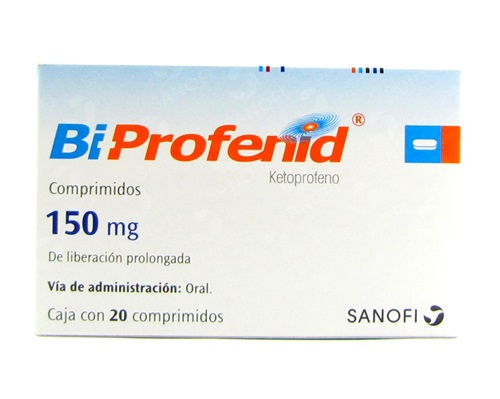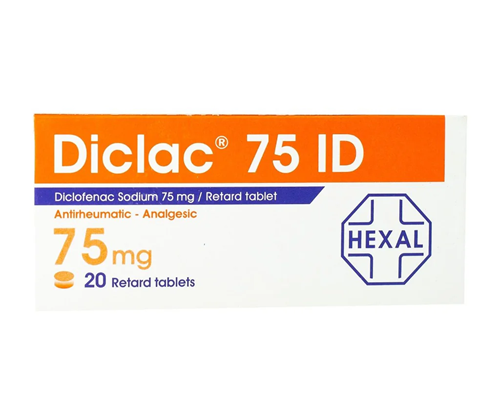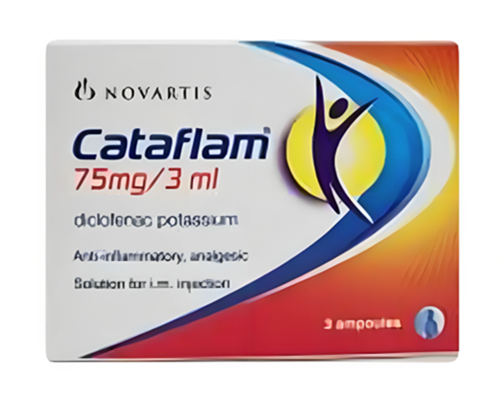Description
Trade name:
Brufen
Compound:
Each tablet contains:
Ibuprofen 200 mg.
Excipients:
Corn starch, magnesium stearate, Opaglos Regular (NA-7150), sucrose, calcium sulfate, sodium CMC, Opalux pink AS-1537, hard paraffin, talc, Opacode S-1-2779 black.
Properties:
Ibuprofen is a non-steroidal anti-inflammatory and antirheumatic drug, a derivative of propionic acid. It has analgesic, anti-inflammatory and antipyretic effects.
Indications:
Treatment of rheumatoid arthritis, joint diseases such as capsulitis, bursitis, tendonitis, tenosynovitis, low back pain. In soft tissue injuries: sprains and strains. For pain relief of mild to moderate pain such as dysmenorrhea, dental and postoperative pain and symptomatic relief of migraine headaches.
Method of administration and dosage:
During or after meals, with plenty of liquid. Brufen tablets should be taken whole. For adults and children over 12 years of age, the recommended dose is 1200 to 1800 mg/day in divided doses. Some patients can be maintained with a dose of 600 to 1200 mg/day. In severe and acute cases, the dosage can be increased until the acute phase is over. The daily dose should not exceed 2400 mg in divided doses.
Contraindications:
Hypersensitivity to ibuprofen or any of the excipients. If hypersensitivity reactions to ibuprofen, aspirin have been previously identified. Patients with a history of gastrointestinal bleeding or perforation associated with previous NSAID therapy. Active or history of recurrent peptic ulcer disease, patients with increased bleeding tendency, cardiovascular disease, severe cardiac, hepatic and renal insufficiency. Last trimester of pregnancy.
Precautions:
The shortest possible course and the minimum effective dose necessary to eliminate symptoms are recommended. If systemic use for more than 10 days is necessary, a doctor should be consulted. During long-term treatment, peripheral blood and liver and kidney function should be monitored. Due to severe purulent complications, it is recommended to avoid using ibuprofen in chickenpox. Ibuprofen affects ovulation, disrupting female reproductive function (reversible after discontinuation of treatment).
Pregnancy and lactation: Increases the risk of miscarriage, as well as heart defects in early pregnancy. It is not recommended to use during pregnancy or use the minimum dose after consulting a doctor. It can be excreted in breast milk. Therefore, it is recommended to stop breastfeeding while using the drug.
Side effects:
Uncommon: hematopoiesis disorders (anemia, leukopenia, etc.), nonspecific allergic reactions, bronchial asthma, skin reactions (itching, urticaria, Quincke’s edema, Stevens-Johnson syndrome), allergic rhinitis, tachycardia, arterial hypotension, abdominal pain, nausea, heartburn, bloating; diarrhea, flatulence, constipation, vomiting; gastrointestinal bleeding, ulcerative stomatitis, gastritis; exacerbation of colitis, liver dysfunction, hepatitis and jaundice, acute renal failure; cystitis, headache; aseptic meningitis, heart failure, peripheral edema; with prolonged use, the risk of myocardial infarction, stroke, increased blood pressure is increased.
Storage method:
Store at a temperature not exceeding 30 degrees in a dry place, protected from light and out of reach of children.









